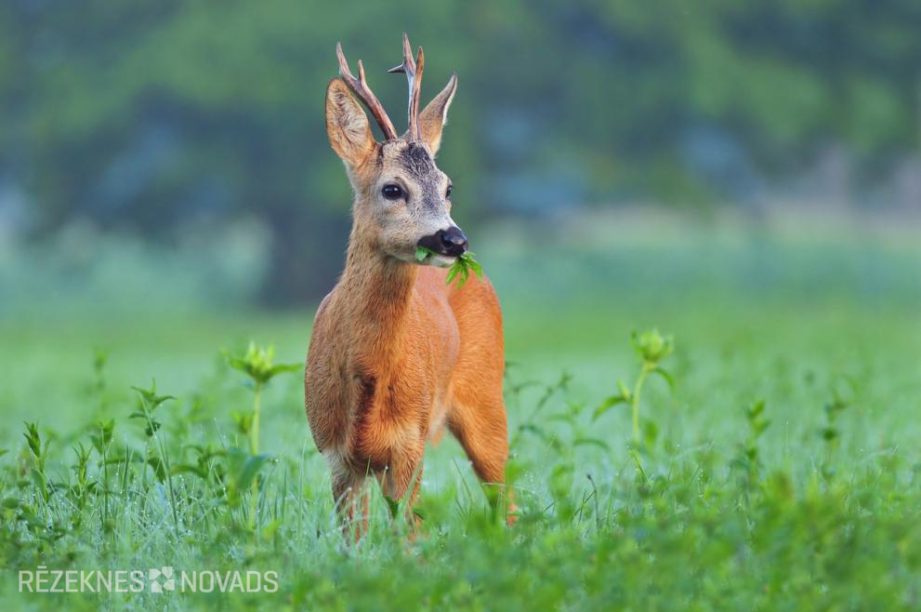Green course: EU investing more than €110 million in LIFE environment and climate projects in 11 EU Member States

Today, the Commission announces more than Eur 110 million for investments THE LIFE Programme integrated environmental and climate protection projects selected after the call for proposals in 2020. Funding will support new significant environmental and climate projects 11 EU countries Cyprus, Czech Republic, Denmark, Estonia, Finland, France, Latvia, Lithuania, Netherlands, Poland and Slovenia. Projects promote green Recovery from Covid-19 pandemic and support European Green Course the objectives of making THE EU climate neutral and zero-pollution by 2050. These are examples of actions aimed at achieving the main objectives of the European green course under EU Biodiversity Strategy for 2030 and EU circular economy action plan.
President-in-Office of the Council on European Green Rate Frans Timmermans:
Rapid action must be taken to address climate, biodiversity and pollution crises. THE LIFE Programme provides direct support to projects across THE EU and allows the protection and restoration of nature at national and regional level. Nature is our most important ally, and we must take care of it so that it can take care of us. I welcome all the organisers of the projects selected today.
Member of the Commission responsible for the environment, oceans and fisheries Virginia Mucovich:
The integrated projects of the LIFE Programme are one of the main instruments for implementing the Green Reform through targeted changes on the ground. With these projects, Member States can greet their economies, restore their nature and biodiversity and improve their resilience. I look forward to the positive results that will be achieved through investments in these 11 countries and beyond.
The specificity of integrated projects is the fact that they contribute to the use of additional EU funding sources, including agricultural funds, structural funds, regional and research funds, as well as national funds and private sector investments. Overall, 11 projects are expected attract more than €10 billion in additional funds, with a substantial complement to the funds allocated today, which will make it possible to achieve real changes on the ground.
Achievement of the green course targets on the ground
Nature conservation. The project will introduce measures in France to stop and reverse the decline of biodiversity in the large Eastern region, for example by creating three experimental forest areas. Another project in turn will reduce the negative effects of human activities which endanger marine and coastal biodiversity in Finland. It envisages monitoring and improving the management of the national network of marine protected areas. These projects will help to implement EU Biodiversity Strategy for 2030.
Clean air. The project will implement measures in Poland to improve overall air quality in the Silesian region, where air pollution is one of the most serious in Europe. The project intends to replace low-fuel household heating installations with less polluting alternatives. This project helps achieve EU targets for 2030 in the field of greenhouse gas emissions and implement Zero pollution action plan.
Waste management. In Cyprus, the project will aim to improve the infrastructure and collection systems of recyclable and biodegradable waste. Latvia will focus on improving waste collection and reuse of municipal waste. In Denmark, the project will focus on the prevention of waste generation and the creation of a better regulatory framework in the field of waste. The objective of the project in Slovenia will, inter alia, be to achieve better recycling rates for non-hazardous waste and demolition waste. In total, four projects will be devoted to waste prevention and resource recovery, thus contributing to: EU circular economy action plan implementation and Objectives of the Waste Framework Directive the achievement.
Mitigation of climate change. THE LIFE funding will help Lithuania to achieve the objectives set out in its national energy and climate plan (NEKP), including energy-efficient buildings, climate-friendly mobility, energy saving industry and improved green public procurement. In Estonia, various tools and solutions will be developed for a large renovation of several buildings in three cities. These solutions EU renovation wave strategies it will then be able to be re-used throughout Estonia and other Member States.
Adaptation to climate change In the Netherlands, LIFE funding will help to stimulate adaptation to climate change in a number of sectors: water management, infrastructure, agriculture, nature, health and spatial/urban planning. The Moravia Silesian region in the Czech Republic will improve the climate resilience of the region, improve the quality of the environment for the population and support sustainable development. Both projects will be implemented EU Climate Adaptation Strategies.
Learn more about 11 integrated projects in short descriptions.
General information
THE LIFE programme is AN EU instrument for financing environmental and climate action. It has been active since 1992 and has co-financed more than 5500 projects throughout the European Union and beyond. The European Commission has increased the funding of the LIFE programme for the period 2021-2027 by almost 60 %. It is now eur 5,4 billion. THE LIFE Programme currently has four sub-programmes: nature and biodiversity, the circular economy and quality of life, mitigation and adaptation of climate change and the transition to clean energy.
THE LIFE Programme provides funding for integrated projects. These projects support the implementation of EU environment and climate legislation and policies at regional, multi-regional, national or transnational level. They help Member States to comply with important EU legislation in six areas: nature conservation, water, air, waste management, climate change mitigation and adaptation to climate change.